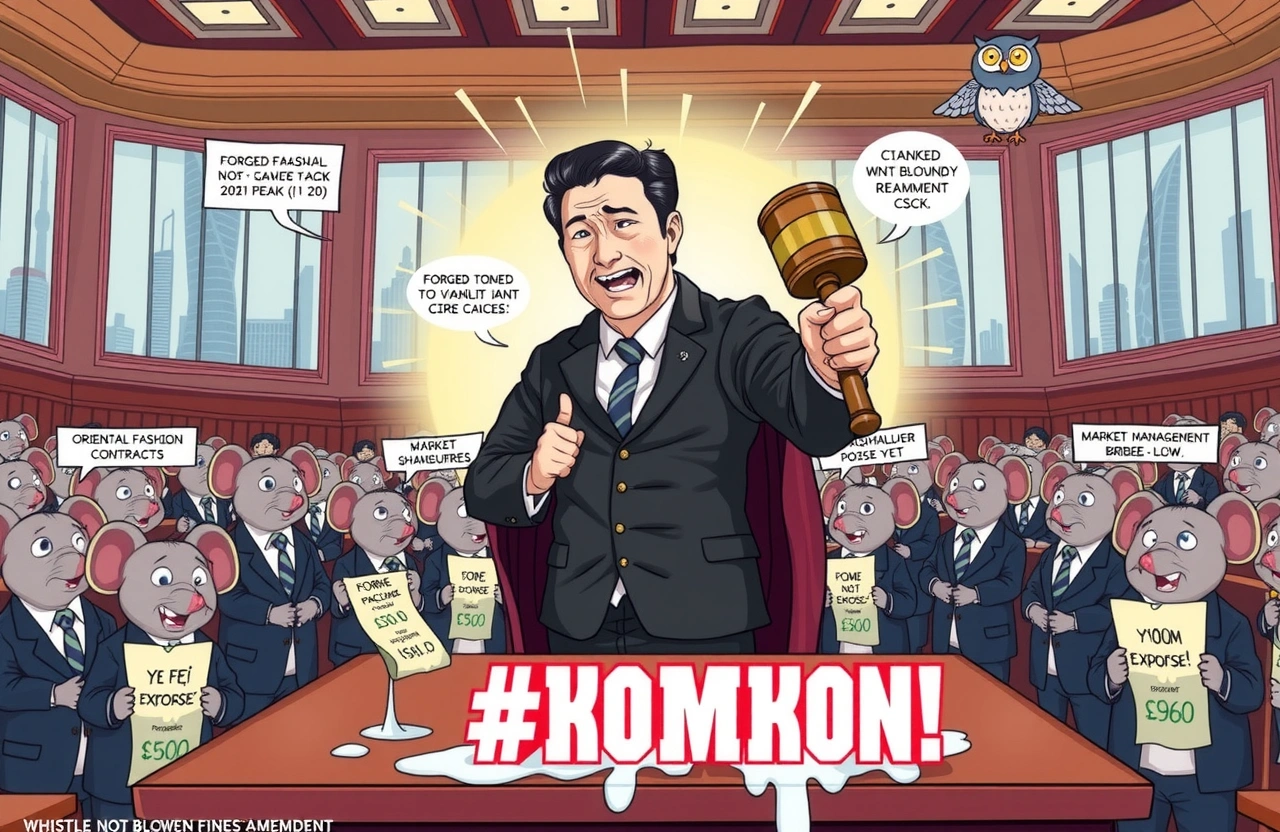The Verdict That Rattled China’s Financial Markets
A Shanghai court has delivered a landmark ruling sentencing Xu Xiong, formerly celebrated as Asia’s largest driving school magnate, to 6.5 years imprisonment and ¥170 million ($23.4 million) for orchestrating sophisticated stock manipulation schemes. This watershed moment culminates from a multi-year regulatory crackdown that exposed systemic misconduct following explosive whistleblower revelations.
Case Timeline and Judicial Ruling
Sentencing Details and Legal Process
The Shanghai First Intermediate People’s Court convicted Xu Xiong of manipulating securities markets through coordinated trading schemes involving his company Oriental Fashion (ST Dongshi). According to the verdict:
– 6.5 years imprisonment
– ¥1.7 billion RMB ($234M) fine
– Confiscation of illicit gains
– Seizure of trading equipment
Legal experts note Xu maintains appeal rights within statutory deadlines. The prosecution built its case on:
– Digital trading records
– Financial forensics
– Coordination timestamps
Corporate Fallout and Regulatory Actions
Concurrent investigations revealed Oriental Fashion’s controlling shareholder illicitly diverted ¥387 million ($53M) through fabricated procurement contracts. Regulators mandated full repayment by June 2025 – which went unfulfilled, triggering:
– Share trading suspension on June 20, 2025
– Potential delisting proceedings
– Forced pre-bankruptcy restructuring
Whistleblower Origins: The 2021 Scandal
Ye Fei’s Market Manipulation Exposé
Former fund manager Ye Fei ignited this reckoning by publicly alleging in May 2021 that Xu Xiong participated in coordinated “market management” schemes involving:
– Pre-arranged block trades
– Artificial volume amplification
– Coordinated price support
Among the implicated stocks Ye specifically identified Oriental Fashion shares. Investigators later substantiated key allegations including:
– Phantom volume transactions
– Cross-account manipulation
– Artificial spread narrowing
Regulatory Response and Sector Impact
Probes expanded across Ye’s allegations of institutionalized misconduct at a dozen listed firms including:
– Haozhi Technology
– Zhongyuan Home Furnishings
– Litong Electronics
– South China Explosives
– Jinchuang Group
Tang Xiuqing and Xiao Yonglin (肖泳林) from Haozhi Technology ultimately faced combined penalties exceeding ¥110 million ($15M). Investigations further implicated:
– Asset managers taking kickbacks
– Brokerage personnel facilitating trades
– Listed company executives
Corporate Collapse: Oriental Fashion’s Downfall
Financial Implosion and Market Consequences
Xu Xiong’s September 2023 arrest accelerated Oriental Fashion’s unraveling:
Financial metrics
– Three consecutive annual losses (2022-2024)
– ¥1.32B ($182M) cumulative net loss
– ST risk warning designation
– Share price collapse (85% from 2021 peak)
Internal governance failures
– Executive infighting
– Leadership vacuum
– Failed restructuring attempts
Investor Protection Failures
Minority shareholder rights were systematically violated through:
– False financial disclosures
– Fund diversion schemes
– Delayed risk disclosures
Regulatory Implications and Market Reform
Enforcement Pattern Analysis
Financial Risk Database shows securities penalties surged 47% annually since 2021:
Comparing enforcement approaches
– Historically weak prosecution ratios
– Strengthened evidence standards
– Personal accountability focus
Recent amendments empower courts to impose:
– Longer incarceration terms
– Percentage-based fines
– Industry bans
Investor Strategy Recommendations
Mitigate exposure to fraud risks through:
Due diligence protocols
– Cross-verify corporate supplier contracts
– Audit related-party transaction disclosures
– Monitor unusual volume patterns
Regulatory alerts
– Subscribe CSRC investigation notices
– Track exchange-enforced suspensions
Broader Significance for Capital Markets
This sentencing demonstrates China’s intensified resolve to combat securities crime. Retail investors gain precedential protection through severe personal liability for executives alongside corporate penalties. Market participants must implement robust governance controls amid heightened regulatory scrutiny.
Financial institutions should anticipate:
– Increased cross-market monitoring
– Expanded whistleblower protections
– Enhanced transaction reporting
Investors should monitor suspended securities listings via Shanghai Stock Exchange bulletins awaiting possible restructuring outcomes.



